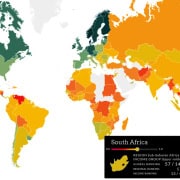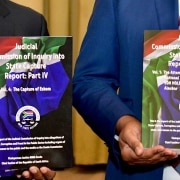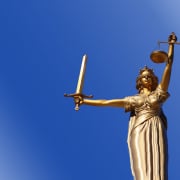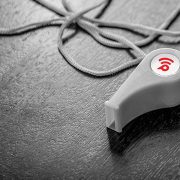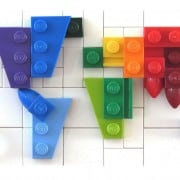|
Getting your Trinity Audio player ready...
|
By Kwazi Dlamini
Rule of Law Definition:
That individuals, persons and government shall submit to, obey and be regulated by law, and not arbitrary action by an individual or a group of individuals ~ Duhaime’s Law Dictionary
No stranger to mediocre ratings, South Africa also does not impress when it comes to obeying the rule of law. The country scored 0.58 on the 2019 World Justice Project (WJP) Rule of Law Index, released on 28 February. The index scores countries between zero and one, with one representing the strongest rule of law and zero representing the weakest. South Africa’s current score is a 0.01 drop from the previous year’s index score of 0.59.
Download the index.
Download South Africa’s information.
In the last year, 56 countries’ rule of law score changed by more than +/- .005. More than one third of these are countries whose index score is above the median but declining. The smallest group—consisting of seven countries—are countries whose Index score is below the median but improving.
Twenty-three countries improved their score by 1% or more in the past year. Zimbabwe, Guatemala, Ethiopia and Malaysia were the biggest movers in this trend. On the other hand, the scores 31 countries declined by more than 1% – Nicaragua, Iran, Jordan and Venezuela dropped the most.
The 2019 WJP index ranks South Africa at 47 globally, out of 126 countries – meaning that it barely escaped a place in the bottom third. Regionally, South Africa dropped three places to fifth out of 30 countries – it was second in sub-Saharan Africa in the 2017/2018 index, behind Ghana and ahead of Botswana.
However, this is also because, for the 2019 edition, the WJP expanded coverage of sub-Saharan Africa to include 12 new countries. Two of these new countries – Namibia and Mauritius – now rank among the top performers in the region. This year Namibia leads with an impressive score of 0.62 and a global rank of 34, with Mauritius, Rwanda and Botswana making up the four countries above South Africa. Most other African countries scored below average.
The three countries with the lowest scores in the region were Cameroon, Mauritania, and the Democratic Republic of the Congo (124 out of 126 countries globally).
South Africa does fare better than some big economies around the world like fellow Brics nations India, China, Brazil and Russia as well as most African countries. However, given the consistently low scores of the latter, this should hardly be a source of pride.
Eight indicating factors
The WJP Rule of Law index measured 126 countries worldwide, on the basis of eight factors: constraints on government powers, performance of the criminal justice system, civil justice, absence of corruption, open government fundamental rights, order and security and regulatory enforcement. Information is gathered through more than 120 000 household surveys and 3 800 expert surveys in the 126 countries and jurisdictions.
Within these eight primary indicators are 44 sub-factors that contribute to the overall score.
SOUTH AFRICA RANKINGS (1 is best)
| FACTOR | GLOBAL RANK | REGIONAL RANK | INCOME RANK |
| Constraints on Government Powers | 37/126 | 3/30 | 5/38 |
| Absence of Corruption | 58/126 | 6/30 | 18/38 |
| Open Government | 31/126 | 1/30 | 3/38 |
| Fundamental Rights | 43/126 | 4/30 | 8/38 |
| Order and Security | 106/126 | 22/30 | 34/38 |
| Regulatory Enforcement | 47/126 | 7/30 | 9/38 |
| Civil Justice | 45/126 | 6/30 | 13/38 |
| Criminal Justice | 45/126 | 5/30 | 12/38 |
For Constraints on Government Powers South Africa ranked third in the region, out of 30 countries. It topped the list in Open Government but slipped badly to 22 in Order and Security – last year’s rank in this indicator was 12 out of 18. South Africa trended downward for Absence of Corruption, dropping to 0.48 from 0.53, but remained steady for the other indicators.
Corruption shrinks as rule of law grows
Where the rule of law is strong, this means less corruption and abuse of the public purse – therefore countries with the strongest rule of law are less likely to have high levels of corruption, while those who are found to have abused public funds will face consequences. The higher the rule of the law, the lower are factors such as child mortality and homicide, while other factors such as life expectancy increase.
Strengthening the rule of law promotes economic opportunity and social progress, states the LexisNexis Rule of Law Foundation. To advance the rule of law there needs to be a transparent and accurate legal system – this is a fundamental necessity for the rule of law to prevail. An independent judiciary, to protect citizens against abuse of power, is another characteristic of a strong rule of law. The foundation also states that laws put in place must be freely and easily accessible to every person who can understand them.
Furthermore, strong rule of law also includes strong enforcement structures – meaning those found to have broken the laws must be dealt with accordingly and equally.
South Africa is said to have one of the strongest and most independent judiciaries in Africa which can deal with corrupt officials without fear of political interference. Recent years have exposed citizens to horrifying practices of corruption, often at the hands of government officials. These rarely went punished, and residents have largely lost trust in the government and governing party – in this regard South Africa hovers near the bottom of the list in the 2018 Edelman Trust Barometer, which measures global levels of trust in and credibility of business, the government, media, and NGOs.
Although President Cyril Ramaphosa promised a ‘new dawn’ when he was sworn in, progress in combating corruption is slow – and the tales of corrupt activities emerging at the Zondo Commission of inquiry into state capture is shocking the nation on a daily basis.
In a move to improve transparency, South Africa’s Parliament passed the Political Party Funding Bill which is aimed at revealing political parties’ sources of private funding. This is viewed as a positive step after various incidents of private entities making donations to political parties in return for influence. While the legislation has been signed into law and was gazetted back in January 2019, its date of commencement has not been set, and with national elections coming up in just weeks, voters will again not be able to make truly informed opinions about the parties they favour.
The reinstating of the multiple charges against former President Jacob Zuma is another sign of an active and independent judicial system. Still, South Africa is tackling corruption such as irregular appointments of unqualified family and comrades in state institutions, on a daily basis. The country is also among the most financially unequal in the world.

